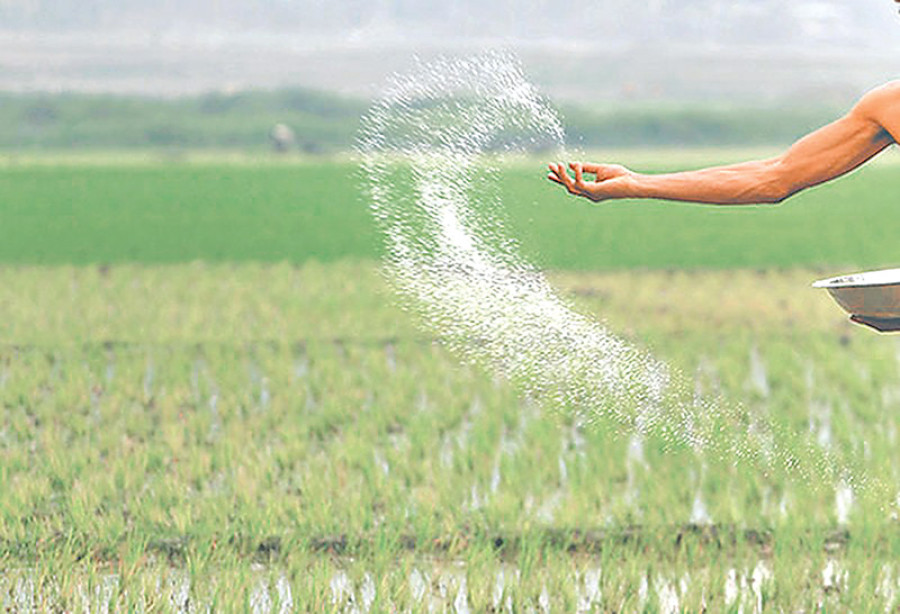Money
Farmers in Dhading bemoan lack of fertiliser
Farmers in Dhading district are bemoaning the difficulty in getting chemical fertiliser, with Agriculture Inputs Company (AIC) failing to supply adequate amount of the farm input.
Harihar Singh Rathaur
Farmers in Dhading district are bemoaning the difficulty in getting chemical fertiliser, with Agriculture Inputs Company (AIC) failing to supply adequate amount of the farm input.
The state enterprise on Wednesday distributed a total of 344 tonnes of urea and DAP, barely sufficient to meet the demand of the farmers associated with 23 agricultural cooperatives. There are 37 agriculture cooperatives operating in the district.
Sitaram Timilsina, chief of the AIC office in Dhading, said the enterprise has run out of the stock with the surge in demand. “Out of the limited supply that AIC received, each cooperative was provided with only 50 to100 tonnes of the fertiliser,” he said.
Farmers expressed their woes as they now expect low yields due to lack of fertiliser. Based on limited amount that the AIC supplied, the cooperatives are also compelled to distribute fixed quota of the input among farmers.
Keshab Kumari Shrestha, a farmer from Nilkantha Municipality-10, said she waited in line for five hours just to receive 20 kg of the fertiliser sold by Nilkantha Cooperative.
Krishna Prasad Dahal, another farmer who was found standing in a long queue on Thursday, said he had to return empty handed multiple times previously because the cooperative went out of stock. Dahal expressed his doubt in receiving fertiliser this time too.
The company adopted the policy of distributing fertiliser to farmers via cooperatives to ensure easy supply and allowed such cooperatives to sell with a profit margin of 5 percent. But in many cases, farmers are being hit hard financially as the subsidised fertiliser find its way to the warehouses of traders instead.
AIC supplies 3,000 tonnes of urea and 1,000 tonnes of DAP to Dhading district every year. The amount is far below the demand of 12,000 tonnes fertiliser that the district needs.
Nepal imports chemical fertiliser worth around Rs16 billion every year. According to the Agriculture Ministry, the annual demand for chemical fertiliser stands at 723,000 tonnes. Subsidised fertiliser covers only a fourth of the country’s total requirement and the rest is met by informal imports or shipments smuggled through the porous border with India.




 21.02°C Kathmandu
21.02°C Kathmandu














